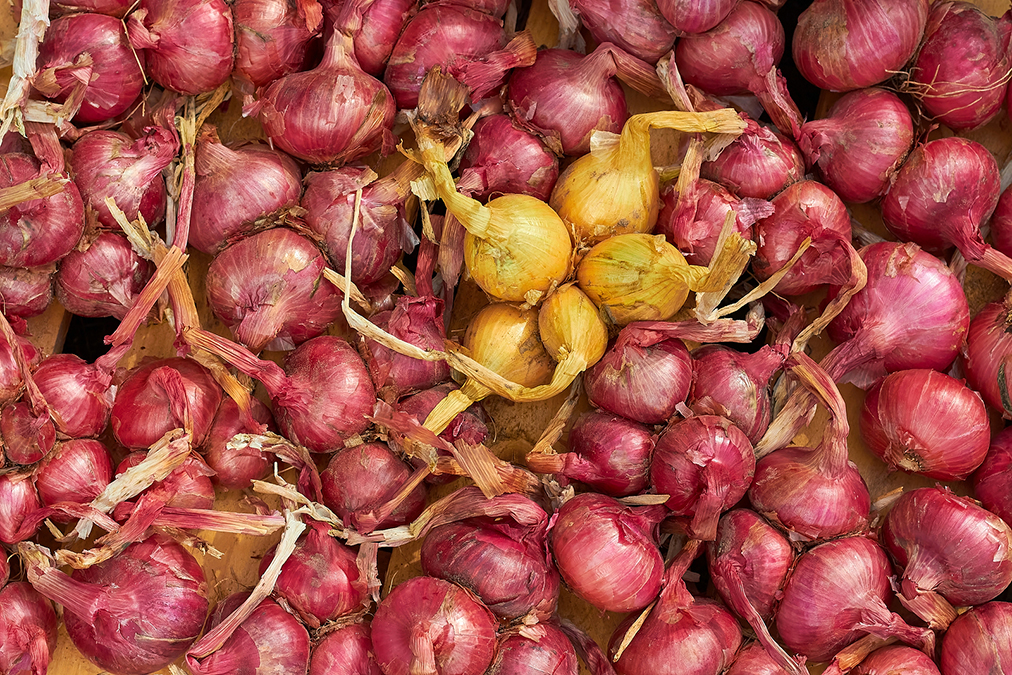 Hemochromatosis is a genetic condition and is therefore often considered incurable.
Hemochromatosis is a genetic condition and is therefore often considered incurable.
But a new study in the latest edition of the journal Metallomics reveals a natural ingredient found in many common vegetables that can drastically stop your body’s absorption of iron therefore permanently halting hemochromatosis.
Through a literature review of already-published studies and a series of experiments on cells in the laboratory, a team of researchers investigated both whether quercetin could act against hemochromatosis and how it might do so.
There are three main things that a treatment for hemochromatosis should do: it should remove iron that has already built up in your body; it should prevent iron in your future meals from accumulating in your body; and it should undo the harm, such as oxidative damage, that the iron has already caused.
By examining what is already known about the effects of quercetin on minerals, they discovered that it was able to limit intracellular iron, thereby enabling it to do the first two jobs.
In addition, they found out that quercetin could inhibit the production of reactive oxygen species, which are the chemicals that cause damage to cells as a result of a wide range of processes, including iron buildup.
Lastly, in the past few years, scientists have discovered a type of cell death called ferroptosis, which results from iron accumulation. The authors of this study also proved that quercetin could prevent ferroptosis.
This suggests that quercetin is an especially useful treatment for hemochromatosis, as it can combat both the accumulation of iron and the cell damage and death caused by it.
As these scientists found in their review of the already-available literature, tons of previous studies have shown that quercetin could help to combat the accumulation of iron in the body.
Luckily, quercetin is completely natural and is, in fact, one of the most widely available plant flavonoids. All you need to do is to eat vegetables and fruit instead of just meat, dairy, and bread.
-
1. Onions are the most abundant source, but since quercetin is a pigment, red and yellow onions are the best.
2. Tomatoes are great, but since most of the quercetin is in the skin, you will be best served by cherry tomatoes as you eat a lot of skin relative to the flesh.
3. Yellow and green peppers.
4. Broccoli, kale, capers, and asparagus.
5. Apples with their skins, especially the red ones.
6. Blueberries, cranberries, raspberries, and cherries. Think colorful!
7. Red grapes and red wine.
8. Green and black tea.
You can also take a quercetin supplement, as these are natural enough and fairly cheap.

 Overcoming IBD
Overcoming IBD Multiple Sclerosis
Multiple Sclerosis Banishing Bronchitis
Banishing Bronchitis Gum Disease Gone
Gum Disease Gone Overcoming Onychomycosis
Overcoming Onychomycosis Neuropathy No More
Neuropathy No More The Prostate Protocol
The Prostate Protocol Brain Booster
Brain Booster
 Ironbound
Ironbound
 Solution for Shingles
Solution for Shingles
 The Bone Density Solution
The Bone Density Solution
 The Ultimate Healing Protocol
The Ultimate Healing Protocol
 The Parkinson's Protocol
The Parkinson's Protocol
 The Chronic Kidney Disease Solution
The Chronic Kidney Disease Solution
 Overthrowing Anxiety
Overthrowing Anxiety The Fatty Liver Solution
The Fatty Liver Solution The Hypothyroidism Solution
The Hypothyroidism Solution
 The End of Gout
The End of Gout The Blood Pressure Program
The Blood Pressure Program
 The Oxigized Cholesterol Strategy
The Oxigized Cholesterol Strategy
 Stop Snoring And Sleep Apnea Program
Stop Snoring And Sleep Apnea Program
 The Arthritis Strategy
The Arthritis Strategy The Vertigo & Dizziness Program
The Vertigo & Dizziness Program The 3-Step Diabetes Strategy
The 3-Step Diabetes Strategy Hemorrhoids Healing Protocol
Hemorrhoids Healing Protocol The Erectile Dysfunction Master
The Erectile Dysfunction Master Weight Loss Breeze
Weight Loss Breeze The IBS Program
The IBS Program The Insomnia Program
The Insomnia Program The Migraine and Headache Program
The Migraine and Headache Program The Neck Pain Solution
The Neck Pain Solution The Menopause Solution
The Menopause Solution The Ejaculation Master
The Ejaculation Master The TMJ Solution
The TMJ Solution The Acid Reflux Solution
The Acid Reflux Solution The Fibromyalgia Solution
The Fibromyalgia Solution The Psoriasis Strategy
The Psoriasis Strategy